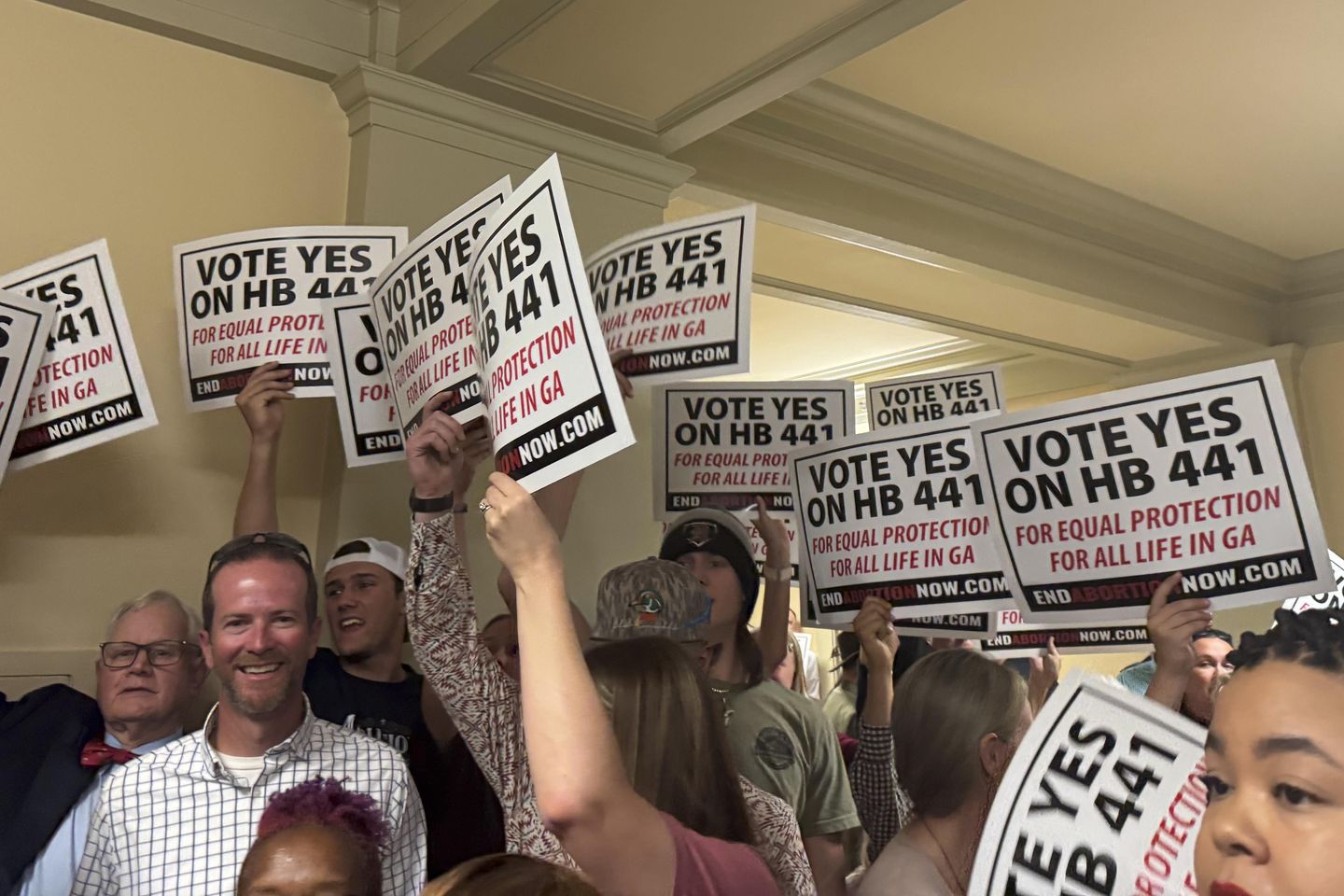
A recent study finds the Supreme Court decision overturning Roe v. Wade has not driven obstetricians and gynecologists out of abortion-restricting states, despite surveys and media reports suggesting an exodus.
Writing this month in JAMA Network Open, three researchers reported that the number of registered OB-GYNs increased slightly faster in 14 states that banned the procedure and in 11 states with partial or pending restrictions than in 25 states that kept it legal after the 2022 ruling.
They said the data confounded expectations that women’s reproductive health doctors would flee after the high court returned jurisdiction over abortion to the states.
“These findings suggest that OB-GYNs are, for now, adapting to new reproductive health care landscapes that impose more restrictions on the care they can deliver,” Rebecca Staiger, a health policy and management professor at the School of Public Health at the University of California, Berkeley, who co-authored the study, told The Washington Times. “The main story here is that there is no systematic outflow.”
She did say more research is needed to track the effects of “anecdotal stories and bigger surveys of physicians” that suggest “longer-term consequences to the supply of OB-GYNs in these environments.”
The study noted that surveys of OB-GYNs have “highlighted growing professional unease around increasing legal risks and constraints to practicing within established standards of care imposed by abortion bans.”
It also referenced “numerous media reports” of physicians retiring or migrating “out of Idaho, Florida, North Carolina, Ohio, Oklahoma, Tennessee and Texas.”
According to the researchers, unease has likewise arisen among OB-GYNs practicing in states where lawmakers have enacted gestational limits on abortion or passed bans that courts have blocked them from enforcing.
Abortion rights historian Mary Ziegler, a law professor at the University of California, Davis, said the findings confirm that where people relocate for work has more to do with personal preference than politics.
“For example, I’m sure there are conservative doctors in California who don’t agree with transitioning patients’ genders, but they’re not going to leave over it,” Ms. Ziegler said. “Moving out is a pretty dramatic step. People have partners with jobs, children in school.”
Ms. Ziegler said abortion laws are “one part of a much bigger picture” that includes where doctors went to school and cost-of-living concerns.
“It’s not like people can just dial up a high-paying job in another state whenever they like,” she added.
The study analyzed 60,085 OB-GYNs practicing from 2018 to 2024.
It found their numbers grew after the Supreme Court ruling by 8.3% in states that banned abortion from conception and by 10.5% in states that enacted partial or pending legislation.
The latter includes states with gestational limits on abortion, such as Nebraska, North Carolina and Virginia.
As of this year, Alabama, Arkansas, Idaho, Indiana, Kentucky, Louisiana, Mississippi, Oklahoma, South Dakota, Tennessee, Texas and West Virginia have banned abortions with limited exceptions.
By comparison, the study found that the number of OB-GYNs increased by 7.7% in states that passed laws to protect the legality of surgical abortions. Such states include California, Michigan and Maryland.
Michael New, a professor of social research at the Catholic University of America and affiliated scholar at the pro-life Charlotte Lozier Institute, said it’s unlikely that many OB-GYNs not directly involved with surgical abortions have moved out of states restricting the procedure since 2022.
“Supporters of legal abortion always push the narrative that pro-life laws hurt public health outcomes, particularly among women,” Mr. New said. “However, the JAMA Network Open study provides strong data that trends in the number of practicing OB-GYNs are similar in pro-life states and states where abortion is legal.”


![NYC Tourist Helicopter Falls into Hudson River, Siemens Executive and Family Among Those Killed [WATCH]](https://www.right2024.com/wp-content/uploads/2025/04/NYC-Tourist-Helicopter-Falls-into-Hudson-River-Siemens-Executive-and-350x250.jpg)





![Red Sox Fan Makes the ‘Catch of the Day’ with Unconventional ‘Glove’ [WATCH]](https://www.right2024.com/wp-content/uploads/2025/04/Red-Sox-Fan-Makes-the-‘Catch-of-the-Day-with-350x250.jpg)
![Green Day’s Cringe Trump Diss Ends in Fire and Evacuation [WATCH]](https://www.right2024.com/wp-content/uploads/2025/04/Green-Days-Cringe-Trump-Diss-Ends-in-Fire-and-Evacuation-350x250.jpg)

![Bikini Clad Spring Breakers Prove Our Education System is Failing Students [WATCH]](https://www.right2024.com/wp-content/uploads/2025/03/Bikini-Clad-Spring-Breakers-Prove-Our-Education-System-is-Failing-350x250.jpg)





